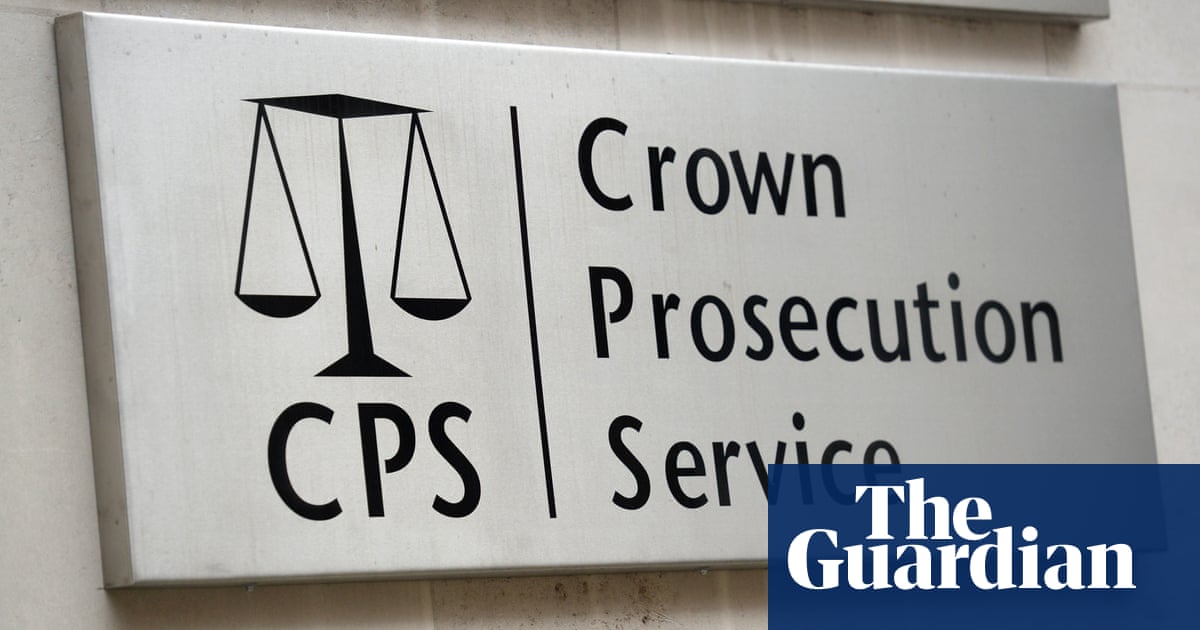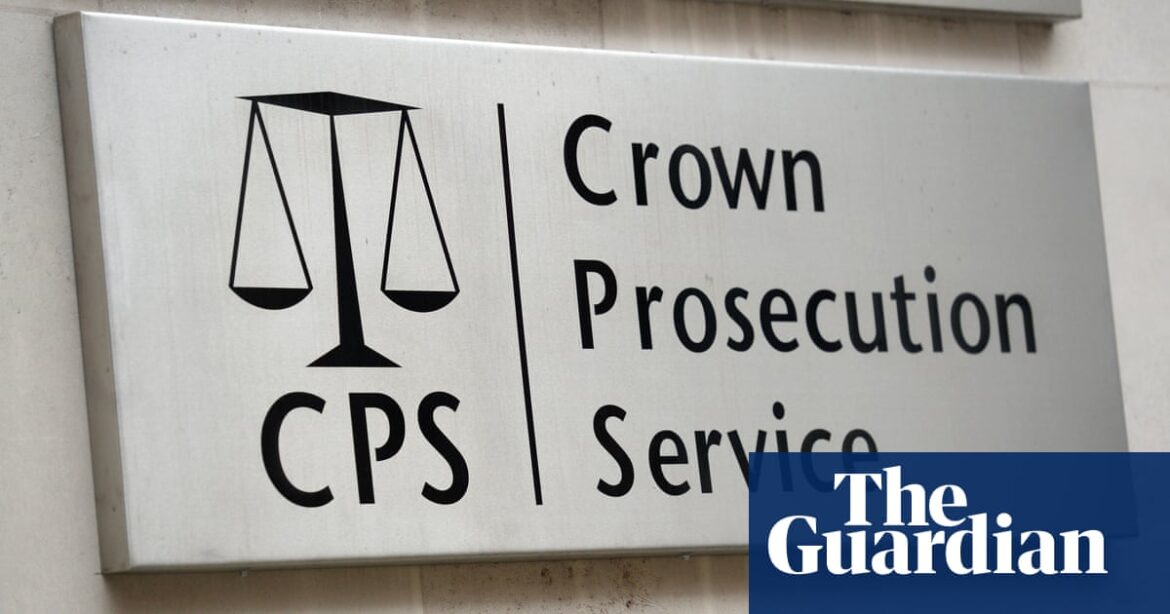
A recent evaluation of the Crown Prosecution Service’s handling of serious sexual offenses in England and Wales has revealed that lawyers have downplayed the severity of teen sexual abuse, displayed an unreasonable fixation on the reliability of rape victims, and employed victim-blaming rhetoric.
The report is the initial comprehensive analysis of the CPS’s handling of rape cases since the proposed reform of the criminal justice system. It cautions against relying on “new myths” surrounding contemporary sexual behaviors and highlights the issue of mental health as a hindrance in victims receiving proper justice.
The report, which is expected to be released publicly this week, follows a government apology to victims three years ago regarding the significant decrease in rape prosecutions in England and Wales since 2016.
The government’s investigation into rape in 2021 resulted in a series of significant changes being made to the police and CPS. An innovative approach called Operation Soteria was implemented, directing officials to eradicate deeply rooted misconceptions about rape and prioritize identifying predatory behavior rather than questioning the credibility of victims. Several important goals have been achieved, such as increasing the number of police referrals and court cases to levels seen in 2016.
A group of scholars from Warwick University conducted interviews with prosecutors, police, and independent sexual violence advisers (ISVAs), and examined CPS case records from July 2022 to November 2023 to create the report. The report notes that the CPS has made advancements, as ISVAs and police report improved collaboration and a change in mindset towards pursuing and prosecuting more cases.
However, they also discovered a continuous detachment between lawyers’ comprehension of the reactions of rape survivors to trauma and the risks of relying on myths and stereotypes, and the actual understanding and evaluation of cases in practice.
The conclusion of the investigation has reportedly had a strong impact on the CPS. Employees have been informed that some of the discoveries may be hard to digest, highlighting the necessity for better methods from prosecutors in handling rape cases, as stated in internal messages.
The staff was informed by senior leaders that the results indicate instances where assumptions and misunderstandings about rape were being used. It is important to clarify that this does not align with our intended method of dealing with rape cases.
According to a source from the CPS, there is a need for an improved quality control system to ensure that flaws in decision making are addressed. It is also important to acknowledge that some prosecutors in the Rasso (rape and serious sexual offences) units possess deeply ingrained attitudes and are not suitable for the job, and therefore should be assigned to a different position.
The CPS said it had accepted the interim findings of the report, which were built into a new national operating model for rape, launched in July last year. It has also commissioned research into the public’s understanding of rape and consent.
Some academics expressed worry about how prosecutors handle reports of non-penetrative crimes by young victims. They noticed a pattern of downplaying these actions as mere “banter” among young individuals, when they should be considered predatory behavior among adults.
According to a representative of the CPS who was interviewed by researchers, the growing number of young girls speaking out about these offenses is actually hindering the investigation of cases that are truly deserving of attention.
An individual support victim advocate stated that certain lawyers who specialize in rape cases have made comments insinuating that many of the reported incidents are fabricated, with the excuse that they involve teenagers behaving like teenagers.
The writers also expressed worries about the possibility of relying on new misconceptions about rape, particularly in relation to contemporary sexual behaviors such as using dating sites for “casual sex”. They also found that prosecutors may view these behaviors as obstacles to pressing charges against a suspect. The writers cautioned that traditional beliefs about what makes a “respectable” victim may be reappearing in different ways.
The report revealed that while some prosecutors were trained to understand rape myths, others still displayed an “obsession” with the credibility of victims. Interviews with other individuals confirmed this behavior, noting that some prosecutors used language that blamed the victim, lacked understanding of the effects of trauma, and equated mental illness with a lack of credibility in victims.
Bypass the advertising for the newsletter.
after newsletter promotion
In a particular instance, a lawyer expressed concern about a person’s mental health, despite there being no mention of it. They suggested that this, along with their multiple drug issues, could make it challenging to establish their credibility.
Andrea Simon, the director of the End Violence Against Women Coalition, stated that this report supports the ongoing knowledge that rape myths and stereotypes are ingrained in the criminal justice system.
The authors stated that prosecutors did not grasp the concept of coercive control. In a particular case where the victim continued to communicate with the accused, one prosecutor asked a police officer, “Why is she still in contact with him if he raped her?” Another prosecutor commented on a text message exchange, saying, “If she had been abused, she would never say something like that.”
Harriet Wistrich, the head of the Centre for Women’s Justice, stated that these instances demonstrate that while the CPS has improved in addressing misconceptions and biases, there is still evidence of discrepancies between their guidelines and decisions made in court. She emphasized the need for better training and accountability for those who are not properly supporting rape victims and understanding the impact of their actions.
Baljit Ubhey, the director of strategy and policy for the CPS, stated that they had initiated a research project to improve the service and guarantee transparency.
According to her, training for prosecutors is addressing misunderstandings about rape, however, the report shows that there is still more progress to be made.
“We are dedicated to making sure that this task is given priority as we implement our new approach throughout England and Wales,” she stated. “We can see the positive results of our authentic collaboration with police colleagues, but we acknowledge that there is still a considerable distance to cover in order to bring about lasting transformation.”
Source: theguardian.com



